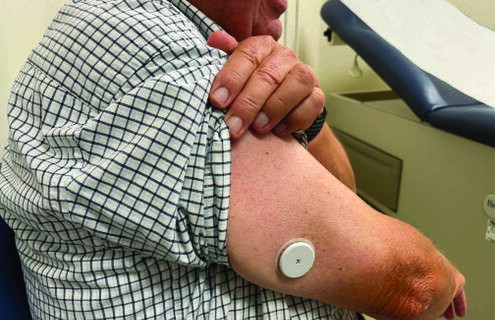
Joanne Hayes, a nurse practitioner for 25 years and a Certified Diabetes Care and Education Specialist (CDCES), has always provided diabetes care as part of her work in family and geriatric medicine. She’s also advocated for “a whole system approach with chronic disease management incorporated into primary care.”
So when a SPARC grant for an embedded diabetes clinic in Primary Care was awarded to APD at the end of 2022, she thought, “Now we can do this. We can offer every patient access to good diabetes care either with their primary care provider or through the diabetes clinic.”
In just six months, the Diabetes Clinic in APD’s Primary Care has had 100 referrals and had more than 200 patients.
Diabetes, an endocrine disease that affects the way the body uses blood sugar (glucose), is one of the dominant chronic conditions in the United States. According to the CDC, approximately 49 percent of adults have diabetes or prediabetes.
As one of its first goals, the Diabetes Clinic offered an educational series to primary care providers on the complexities and challenges of diabetes care.
“The topics included medications, overcoming inertia, and using technologies, like continuous glucose monitoring (CGM),” Hayes said. “Diabetes treatment and care has greatly evolved over the last 100 years when insulin was first used. Now it includes oral and injectable medicines as well as incredible technology.”
In addition to providing support and education to primary care providers, the Diabetes Clinic also provides ongoing care, support, and education to patients. One innovation: the APD Diabetes Clinic team has streamlined CGM ordering for patients.
“This new workflow is an easier way for providers to get the technology to patients,” said Hayes, the director of the Diabetes Clinic at APD. “We take care of the ordering, then patients are automatically set up with an education session to learn to use the CGM and analyze and share the data.”
Next steps include changing the flow of the clinic to streamline clinical care for patients with diabetes. This could include having all the prep work — such as an A1C test to see the average blood glucose level for the past three months — done before or during a clinic visit. Hayes would also like to include retinal and foot exam reports.
“Diabetes is a complex chronic disease that affects many body systems,” Hayes said. “APD recognizes the ongoing need for comprehensive care for our patients with diabetes.”